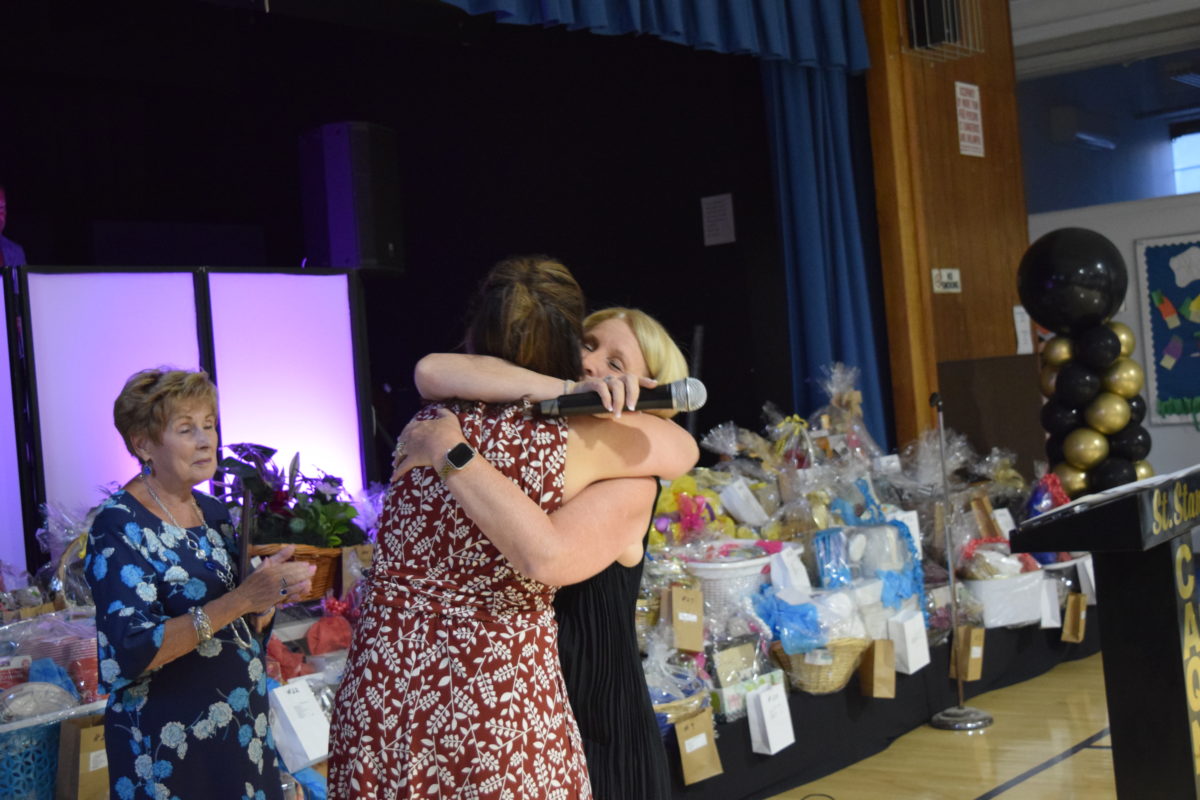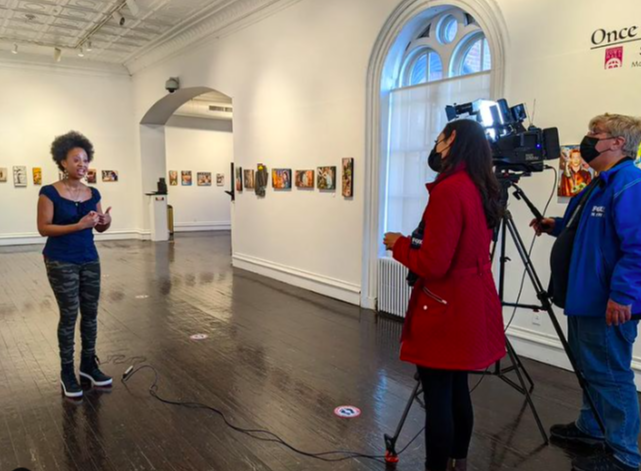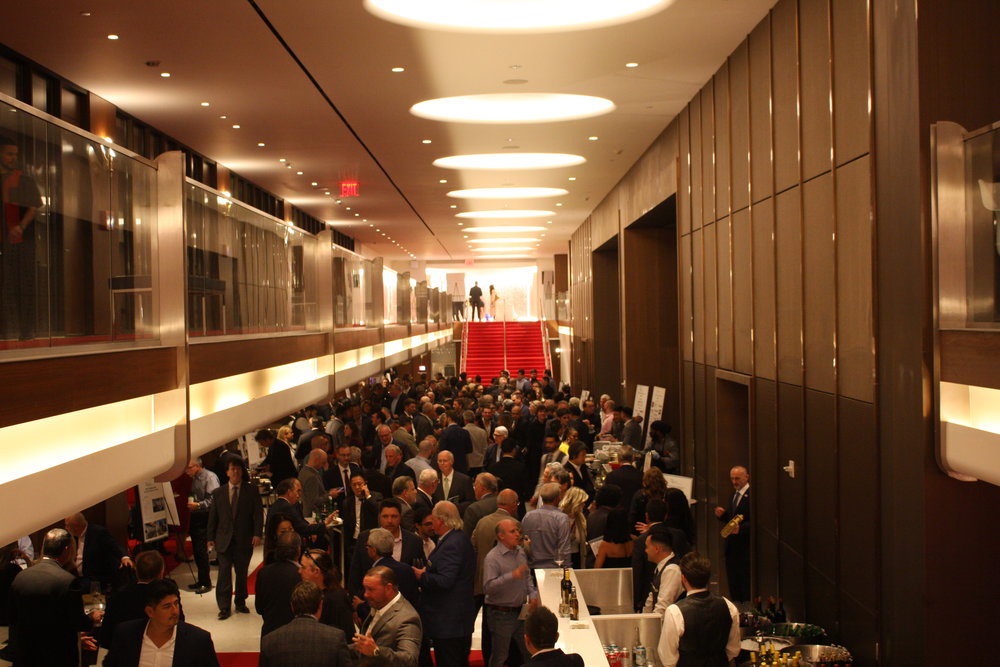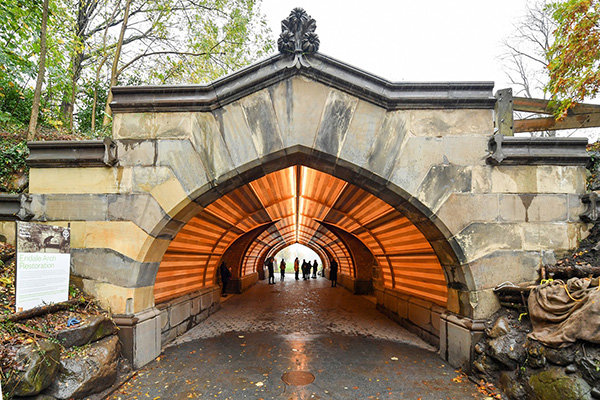St. Stan’s hosts 11th Hall of Fame Dinner
School gym renamed ‘Rudzewick Hall’
On Saturday, the St. Stanislaus Kostka Educational Endowment Committee hosted its 11th annual dinner dance fundraiser, with parents, faculty and staff, families, friends, and other community supporters in attendance.
After two years of being unable to gather, the Committee eagerly presented eight honorees with awards: Rev. Monsignor Joseph Calise; Joan Forgione, education director of St. Stan’s Pre-K for All and the Maspeth Federal Savings’ Board of Directors; Daisy and Ray Montalvo, longtime parental supporters; Diane Marzuillo, Secretary of the St. Stan’s Board of Directors; Rachael Fitzpatrick, educator, lector, and eucharistic minister at St. Stan’s; and Louis Bekios, owner of Grand Florist and member of the Maspeth Kiwanis.

Honoree Joan Forgione and St. Stan’s Principal Catherine Mangone.
“As I look at the list of inductees, I see so many recognizable names: faculty members, former students, parents and grandparents of former and present students, and friends. Our parish community has been blessed by their efforts and I thank them for their work,” Catherine Mangone, principal of St. Stan’s, said.
“I would like to express my sincere thanks to the Endowment Committee. The Committee does not merely support our school with their words, but does so with their actions and their financial support,” she continued. “Their love for this school, and their commitment to its continued success, are blessings for which I am extremely grateful.”
With increased support from the community each year, the Committee has raised over $350,000 for the school, which has gone toward a STEM lab, scholarships, computers, and Smart Boards, upgrades to the school’s electrical service, as well as school summer programs.
In true St. Stanislaus Kostka fashion, the St. Stan’s Players gave musical performances to bring cheer to attendees.
But before everyone enjoyed their dinner, Rev. Monsignor Calise and Michael LoCascio, vice chair of St. Stan’s Board of Directors, presented a plaque to longtime supporters and Maspeth residents Barbara Rudzewick, president of the Endowment Committee, and her husband Ken Rudzewick, committee member.
Given their continued support of St. Stan’s, Calise and LoCascio announced that the school’s gym would be renamed “Rudzewick Hall” in their honor.

Honoree Diane Marzuillo and Barbara Rudzewick.
“This family gives endless support, and we’ve been racking our brains for three years, trying to figure out how to honor someone who’s so humbled,” LoCascio said.
Calise added, “To make sure that the generations to walk through these doors know the appreciation that we feel for you, and the gratitude that we have for the work that you’ve done, this room is being rededicated Rudzewick Hall.”
The Rudzewicks are extremely grateful for the gesture.
“We’ve both been baptized here, got married here, and all our children received their sacraments here,” Barbara Rudzewick said. “We’re so blessed to be a part of this community.”




 A panel of artists, community leaders and stakeholders selected the artists and organizations that would receive grant funding via an application process that examined artistic merit, community benefit and project feasibility.
A panel of artists, community leaders and stakeholders selected the artists and organizations that would receive grant funding via an application process that examined artistic merit, community benefit and project feasibility.

